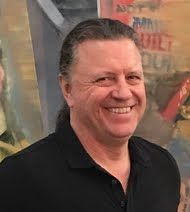Remembering the Missing in Action

McCain and the POW Cover-up:
The "war hero" candidate buried information about POWs left behind in Vietnam
(Research support provided by the Investigative Fund of The Nation Institute. This is a link to the expanded version, with primary documents attached, of a story that appears in the October 6, 2008 issue of The Nation.)
By Sydney H. Schanberg
The third Friday in September is set aside to remember the members of the United States Armed Forces who were imprisoned during war or went missing in action on battlefields across the globe. Take it upon yourself to read all of Sydney Schanberg's article, McCain and the POW Cover-up, which is linked above. The Nation Magazine describes Sydney Schanberg's career and dedication to honest journalism:
Sydney H. Schanberg, a journalist for nearly 50 years, has written extensively on foreign affairs--particularly Asia--and on domestic issues such as ethics, racial problems, government secrecy, corporate excesses and the weaknesses of the national media.
Most of his journalism career has been spent on newspapers but his award-winning work has also appeared widely in other publications and media. The 1984 movie, The Killing Fields, which won several Academy Awards, was based on his book The Death and Life of Dith Pran - a memoir of his experiences covering the war in Cambodia for the New York Times and of his relationship with his Cambodian colleague, Dith Pran.
For his accounts of the fall of Cambodia to the Khmer Rouge in 1975, Schanberg was awarded the Pulitzer Prize for international reporting "at great risk." He is also the recipient of many other awards - including two George Polk awards, two Overseas Press Club awards and the Sigma Delta Chi prize for distinguished journalism.
Sydney Schanberg is not a conspiracy theorist and he has been meticulous in his research. The article begins:
"John McCain, who has risen to political prominence on his image as a Vietnam POW war hero, has, inexplicably, worked very hard to hide from the public stunning information about American prisoners in Vietnam who, unlike him, didn't return home. Throughout his Senate career, McCain has quietly sponsored and pushed into federal law a set of prohibitions that keep the most revealing information about these men buried as classified documents. Thus the war hero who people would logically imagine as a determined crusader for the interests of POWs and their families became instead the strange champion of hiding the evidence and closing the books.
Almost as striking is the manner in which the mainstream press has shied from reporting the POW story and McCain's role in it, even as the Republican Party has made McCain's military service the focus of his presidential campaign. Reporters who had covered the Vietnam War turned their heads and walked in other directions. McCain doesn't talk about the missing men, and the press never asks him about them.
The sum of the secrets McCain has sought to hide is not small. There exists a telling mass of official documents, radio intercepts, witness depositions, satellite photos of rescue symbols that pilots were trained to use, electronic messages from the ground containing the individual code numbers given to airmen, a rescue mission by a special forces unit that was aborted twice by Washington—and even sworn testimony by two Defense secretaries that "men were left behind." This imposing body of evidence suggests that a large number—the documents indicate probably hundreds—of the US prisoners held by Vietnam were not returned when the peace treaty was signed in January 1973 and Hanoi released 591 men, among them Navy combat pilot John S. McCain."...
Continue Reading McCain and the POW Cover-up



0 Comments:
Post a Comment
<< Home